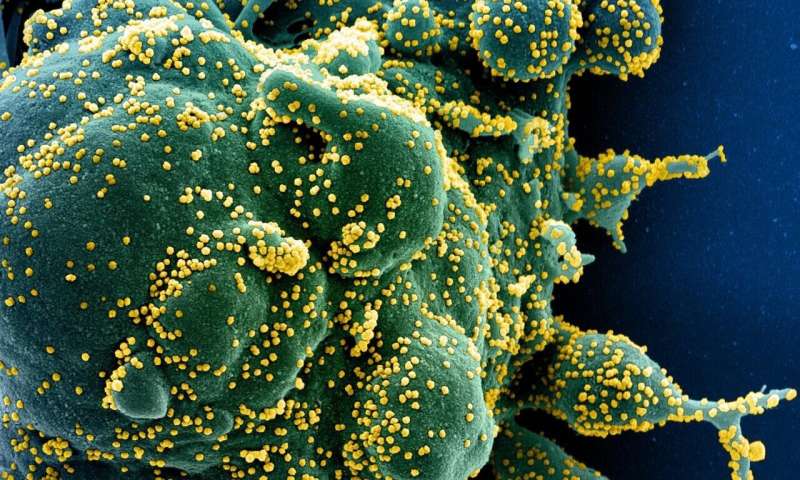Home » Health News »
Elevated biomarker for blood vessel damage found in all children with SARS-CoV-2

Researchers at Children’s Hospital of Philadelphia (CHOP) have found elevated levels of a biomarker related to blood vessel damage in children with SARS-CoV-2 infection, even if the children had minimal or no symptoms of COVID-19. They also found that a high proportion of children with SARS-CoV-2 infection met clinical and diagnostic criteria for thrombotic microangiopathy (TMA). TMA is a syndrome that involves clotting in the small blood vessels and has been identified as a potential cause for severe manifestations of COVID-19 in adults.
The findings were published today in Blood Advances.
“We do not yet know the clinical implications of this elevated biomarker in children with COVID-19 and no symptoms or minimal symptoms,” said co-senior author David T. Teachey, MD, an attending physician, Co-Leader of the Immune Dysregulation Frontier Program, and Director of Clinical Research at the Center for Childhood Cancer Research at CHOP. “We should continue testing for and monitoring children with SARS-CoV-2 so that we can better understand how the virus affects them in both the short and long term.”
Most children infected with SARS-CoV-2 have mild or minimal symptoms, although a small proportion develop severe disease or Multisystem Inflammatory Syndrome in Children (MIS-C), a post-viral inflammatory response to COVID-19. Researchers have identified TMA mediated by the complement cascade as a potential cause for severe manifestations of COVID-19 in adults. The complement cascade is part of the immune system that enhances the immune response but also promotes inflammation. However, the role of complement-mediated TMA has not been studied in children.
To assess the role of complement activation in children with SARS-CoV-2, the Immune Dysregulation Frontier Program, including co-senior authors Edward Behrens, MD and Hamid Bassiri, MD, Ph.D. and co-first authors Caroline Diorio, MD and Kevin McNerney, MD, analyzed 50 pediatric patients hospitalized at CHOP with acute SARS-CoV-2 infection between April and July 2020. Of those 50 patients, 21 had minimal COVID-19, 11 had severe COVID-19, and 18 were diagnosed with MIS-C. The researchers used soluble C5b9 (sC5b9) as a biomarker for complement activation and TMA. sC5b9 has been implicated as an indicator of severity in TMA after hematopoietic stem cell transplant; transplant patients with markedly elevated sC5b9 have increased mortality.
The researchers found elevations of C5b9 in patients with severe COVID-19 and MIS-C, but to their surprise, they also found that C5b9 was elevated in patients with minimal or asymptomatic disease. Although the study was prospective, meaning patients were enrolled and data collected from the time of hospitalization, the researchers obtained some of the laboratory data retrospectively when it came to evaluating whether they met the clinical criteria for TMA. Of the 22 patients for whom complete data were available, 19 (86%) met the criteria for TMA. Additionally, sC5b9 levels were elevated both in patients who did and did not meet criteria for TMA.
Source: Read Full Article



